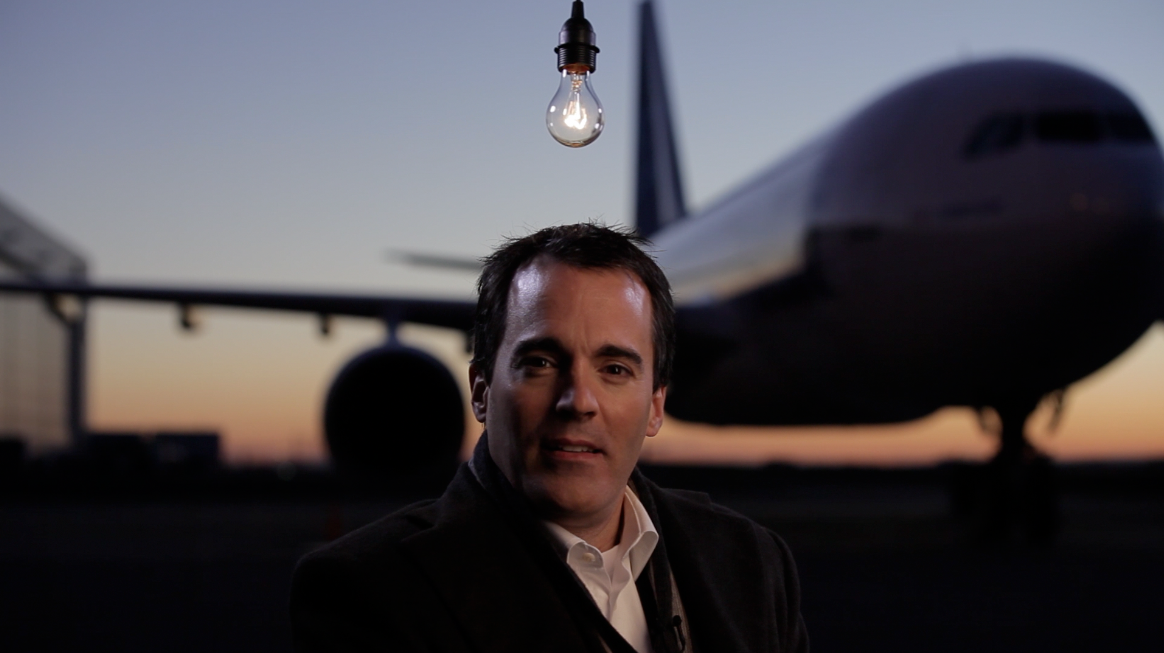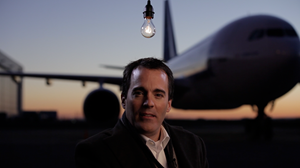Louis Bélanger-Martin Taps Australian Market for High-Impact Aviation Tech Pilots

Photo Courtesy of: Louis Bélanger-Martin
SYDNEY, Aug. 26, 2025 (GLOBE NEWSWIRE) -- Louis Bélanger-Martin, a longtime figure in aviation technology, is focusing his next phase of development on Australia. The Canadian entrepreneur, known for co-founding DTI Software and helping form Global Eagle Entertainment, has begun introducing data-driven tools aimed at improving how airlines manage passenger experience, media licensing, and environmental impact.
Through his new firm W Australia, based in Sydney, Bélanger-Martin is coordinating a series of pilot programs with local airlines. These projects aim to address long-standing inefficiencies in inflight operations without requiring major capital investments or system overhauls. The move comes as Australia’s aviation sector recovers from the pandemic while grappling with fresh structural challenges.
“We selected Australia because the market has both high-volume international traffic and real constraints in domestic and regional aviation,” Bélanger-Martin said. “That combination gives us a real-world testing ground.”
Aviation Sector Under Pressure
The Australian aviation market has seen uneven recovery over the past 18 months. According to Q1 2025 data from OAG, international seat capacity from Australia reached 7.1 million, an increase of 6.1 percent compared to the same period in 2024. However, domestic capacity declined 3.6 percent during the same quarter. Regional routes, in particular, remain under pressure following the exit of Bonza in April 2024 and Rex’s withdrawal from several metropolitan corridors in July.
The Australian Competition and Consumer Commission (ACCC) reported a 13.6 percent increase in average real fare revenue per passenger between July and December 2024. This follows a 10.7 percent increase in the same period the year before, attributed largely to reduced competition and concentrated route control by the Qantas Group and Virgin Australia.
These challenges have left airlines searching for lower-cost ways to stabilise service, modernise passenger engagement, and improve revenue outside of airfare hikes. Bélanger-Martin's current work is intended to slot directly into that space.
Blockchain and Reforestation Initiatives Underway
One of the primary pilots currently active in Australia is a blockchain-based content licensing platform. Developed by W Australia, the platform is already being tested by multiple local carriers and has helped reduce delays and royalty disputes in managing inflight entertainment agreements. Internal assessments shared by industry sources suggest that the pilot has reduced contract backlogs and licensing errors by over 60 percent since implementation.
In parallel, Bélanger-Martin has partnered with the Australian branch of climate technology startup SkySeed. The collaboration ties passengers’ streaming activity to automatic micro-donations for reforestation in parts of the Northern Territory. According to early estimates from trial flights, the system could contribute to offsetting up to 12 percent of flight-related emissions if scaled fleet-wide.
“These aren’t theoretical projects,” Bélanger-Martin said. “They’re already active and measurable. Our role is to build tools that support airline goals while also addressing broader environmental and operational constraints.”
Low-Visibility, Data-Rich Strategy
Unlike previous ventures, Bélanger-Martin is keeping W Australia’s development intentionally quiet. There are no splashy press tours, and public-facing branding is minimal. Airline partners involved in the current test programs have not been publicly named, though industry insiders suggest that one major domestic operator is close to expanding its trial fleet.
The internal team at W Australia remains small, numbering fewer than 150 staff. Recruitment has focused on retraining individuals from recently downsized airline teams, particularly former operations personnel and inflight service workers. One former baggage supervisor now leads UX testing on biometric sensor integration. Another, previously with an airline retail division, is building data models to support personalised service timing.
“We’re hiring for real-world knowledge, not just technical background,” Bélanger-Martin said. “The people who have lived in these systems are the ones best positioned to improve them.”
Supersonic Cabin Research Still in Concept Stage
Though most current pilots deal with near-term logistics and data efficiency, Bélanger-Martin has not ruled out more ambitious development. Internal research within W Australia is currently exploring adaptive cabin environments for long-haul and future supersonic routes. The project includes concepts for cabin pressure modulation, wave-cancellation acoustics, and adjustable seat ergonomics.
Bélanger-Martin has been vocal in the past about Concorde’s legacy. He has criticised its design for prioritising speed over passenger comfort and is advocating for supersonic cabins that integrate biometric feedback and personalised controls.
“The Concorde was beautiful and fast, but it wasn’t built for the passenger,” he said. “If supersonic is going to return, it has to do more than save time. It has to make that time feel worthwhile.”
Australia as a Launchpad, Not a Final Destination
W Australia is currently in early discussions with airport infrastructure providers, environmental data agencies, and domestic aviation networks about expanding pilot programs. While Australia is the current base of testing, the long-term goal appears to be exportability. Bélanger-Martin has historically scaled his systems globally, and observers expect these technologies to eventually appear in other mid-sized aviation markets.
Still, the local context remains central. With uneven capacity, high ticket prices, and increased interest in low-carbon solutions, Australia is likely to see continued experimentation from W Australia throughout 2025.
Whether these tools scale nationally or internationally, Bélanger-Martin’s model reflects a consistent throughline in his career: test discreetly, integrate quietly, and only expand when systems prove their impact.
Contact:
Name: Louis Bélanger-Martin
Company: W Australia
Website: https://louisbelangermartin.com.au/about
A photo accompanying this announcement is available at https://www.globenewswire.com/NewsRoom/AttachmentNg/13ff3f36-1101-4646-bb59-65b4080e36b8

Legal Disclaimer:
EIN Presswire provides this news content "as is" without warranty of any kind. We do not accept any responsibility or liability for the accuracy, content, images, videos, licenses, completeness, legality, or reliability of the information contained in this article. If you have any complaints or copyright issues related to this article, kindly contact the author above.

